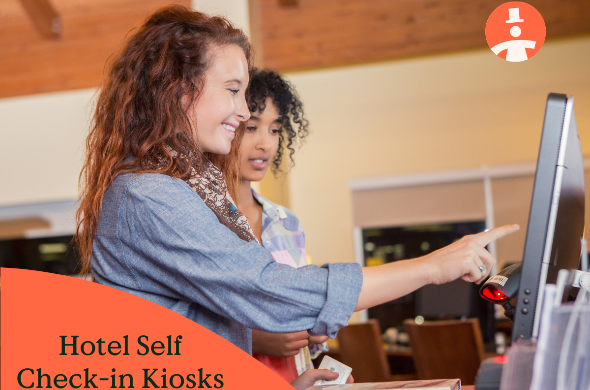
Providing adequate accessibility at your B&B should be a high priority if you don’t want to miss out on potentially rich revenue opportunities.
The global disabled community stretches into millions of people, many of them baby boomers, meaning there is a massive market out there who may be looking to travel.
Take note of the following statistics:
- About a fifth of Americans have some kind of disability
- 11% of Australian tourists are disabled
- Of domestic UK travelers, 12% have a disability or long-term health problem
Given these huge numbers, it would be unfair for these travelers to be denied their chance to see what the world has to offer.
While B&Bs and hotels cannot take on the greater challenge of making destinations more accessible, they can take ownership of their own property to give the disabled adequate access and open themselves up to a new revenue stream in the process.
Disabled guests are likely to be very loyal if they find a property that caters for their every need so putting the effort in to be disability friendly could reap big rewards.
How to improve accessibility at your B&B
If you have an existing property, it’s very likely you’ll need to make a certain number of modifications. If you’re aiming to open a B&B, you should incorporate the following features into your design or refurbishment plans:
- Ramps
First and foremost, accessibility at your B&B will be made much simpler with the inclusion of wheelchair or walker friendly ramp into the entrance of your property. - Lifts
If your property is big enough to have a second story, you’ll need to consider lift access to the top floor. - Layout
Alternatively, you can ensure that all necessary facilities are placed downstairs for guests who are less mobile, such as the bedroom, bathroom, and kitchen areas. - Bathrooms and toilets
This is where modification is also vital. Handrails are essential as are roll-in showers and lengthened tap levers. - Corridors and doorways
Widening both corridors and doorways will make it easier for disabled guests to move around the property. You should also allow adequate space to surround the beds for the same reason. - Web accessibility
Disability won’t only affect direct access to your property but also the ease of which impaired guests are able to book your small hotel or B&B. People with sight, cognitive, or other restrictions still need to be able to make a booking on your website if they wish. For example, some people need to use a screen reader and if your information is not displayed correctly, such as alt text for images, they will encounter confusion. Other issues might include not being able to use a mouse, so the keyboard should provide all necessary functionality. You need to make sure your website design is up-to-date. Read more about web accessibility here. - Lowered light switches
This is a simple solution but one that could easily be overlooked. - Service dogs
Vision-impaired guests need their service dog with them at all times and you’ll have to cater for this scenario. Braille menus and other reading material should also be provided - Water features
Just as with bathrooms, spas, jacuzzis, or even pools should have some kind of sloped entry to allow all guests to take to the water easily. - Designated parking
It goes without saying there should be reserved parking for disabled guests as close to the entrance of your property as possible. - Proximity to services
This is not something that is easily altered but ideally your B&B will be located a reasonably close distance from emergency and other relevant services such as chemists.
Creating accessibility at your B&B may not be simple depending on your circumstances but it’s an option, in some cases a legal requirement, you should seriously explore.
It gives the less fortunate a chance to enjoy everything they should be able to and gives your business another opportunity to fill occupancy and increase revenue.
By Dean Elphick
Dean is the Senior Content Marketing Specialist of Little Hotelier, the all-in-one software solution purpose-built to make the lives of small accommodation providers easier. Dean has made writing and creating content his passion for the entirety of his professional life, which includes more than six years at Little Hotelier. Through content, Dean aims to provide education, inspiration, assistance, and, ultimately, value for small accommodation businesses looking to improve the way they run their operations (and live their life).
Table of contents
“Working with Little Hotelier has been the solution to our many problems, we've immediately modernized our administration, especially in customer service”
Owner, Hotel Santa Maria








